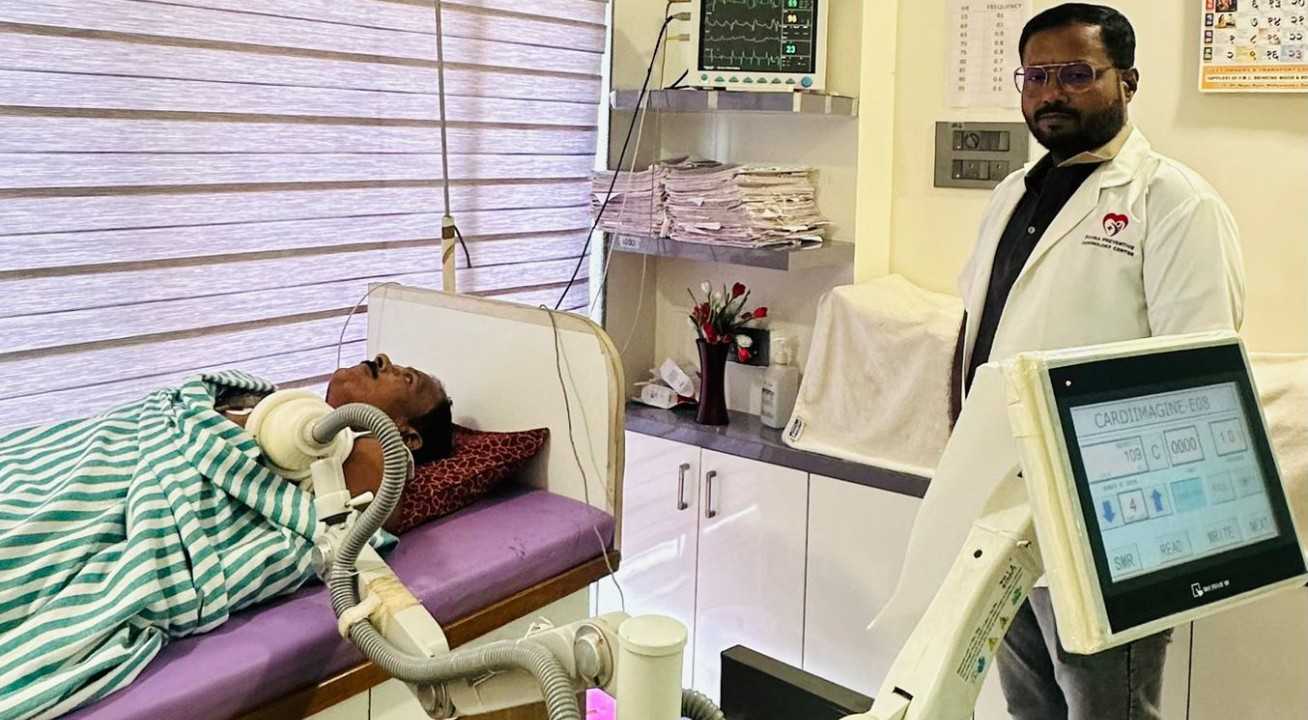Extracorporeal Shockwave Myocardial Revascularization, or ESMR, is one of the most successful methodologies of improving the blood supply to the heart muscles without invasive surgeries. It is also termed as Non-Invasive Cardiac Angiogenesis Therapy (Ni-CATh) by some clinics. To benefit patients who would like to avoid angioplasty and bypass surgery, Poona Preventive Cardiology Center (PPCC) is one of the few clinics that has introduced this German concept of ESMR treatment in India. Its use has rapidly gained popularity as a dependable heart treatment to potentially avoid angioplasty and bypass surgery.
ESMR is usually suggested due to the exhaustion or ineffectiveness of all other conventional treatment options. Nevertheless, ESMR offers a new ray of hope that complements the existing treatment methodologies.

Before the commencement of the procedure, the exact location of the ischemic zone (treatment zone) is identified using the ultrasound imaging system. As the name suggests, mild shockwaves are targeted to the treatment zone through the anatomical acoustic window. These acoustic waves create shear stress on the vessel wall and stimulate the growth of new blood vessels and expand their network around the blocked arteries, which enhances the quantum of blood supply to the heart and reduces the occurrences of angina.
The following categories of patients can opt for ESMR treatment:
After conducting the preliminary tests and screening procedures and determining the suitability of the candidature, the treatment sessions are initiated. Typically, each session lasts for half an hour, performed for nine sessions that are spread across three months.
During the treatment, the patient feels minimal pain, not more than a tickling effect. It does not carry any associated risk factors. Being an outpatient and non-invasive procedure, sedatives are also not required. In short, no short term or long term side effects are reported till now.
In a nutshell, ESMR offers a new ray of hope for heart patients deprived of other chances due to various medical conditions.